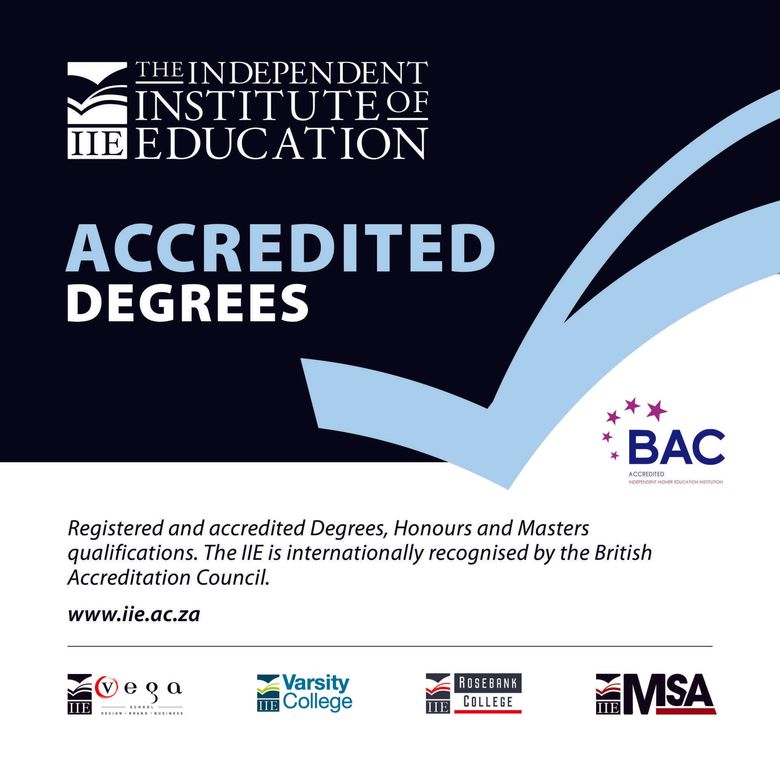WHEN SCREENS REPLACE TEACHERS: DANGERS OF INTRODUCING TECH IN THE CLASSSROOM
The World of Work • March 12, 2018
Technology has taken the world by storm and its use now pervades arguably all fields. The education sector is also embracing the potential that technology offers, with good schools and universities incorporating tech to strengthen educational outcomes. But with devices and applications now ubiquitous across generations of learning – from infants to doctoral candidates – an expert has warned that teachers and lecturers must be strategic and judicious about technology, so that it supports learning rather than sabotages it.
Aaron Koopman, Head of Programme: Faculty of Commerce at The Independent Institute of Education, SA's largest private higher education provider, says being cautious is particularly important at school level, where habits for lifelong learning are either adopted or abandoned.
"One of the most important areas of risk, is where technology hinders the development of social and collaborative skills," he notes.
"Collaboration and teamwork are global competencies and rely on the ability of learners to engage with others to reach shared outcomes. While there are ways in which technology can be used, such as online engagement with people on another continent, a document sharing process or a blog, it is also critical to promote collaboration, which means teachers must ensure that the face-to-face engagement skills of young learners in particular are developed," he says.
Another area of concern, is where the convenience (for educators) and addictiveness (for learners) of technology lead to a situation where it effectively replaces teachers, similar to home environments where screens become de facto babysitters.
"The most effective way to use technology is to support, extend, reinforce and enhance teaching. It becomes a risk however when one assumes that children can learn independently via technology, particularly when it is not at all interactive or responsive."
It is also problematic when technology is passive, for instance when learners and students use e-books that cannot be annotated.
"This renders them less supportive of learning than hard copy books that can underlined," says Koopman.
A significant danger arises where technology is not managed, he adds.
"Over and above the obvious risks when young people access inappropriate material online, classroom management of devices is critical. If a distracted young person can virtually wander off and play a game or spend time on social media during class time because of a lack of environmental management, valuable teaching time is lost.
"It is therefore necessary for good schools and institutions to put in place measures whereby they can lock down what can be accessed during class time, or through other management approaches. Having a management strategy is, however, non-negotiable."
Finally, tech fails can make for major teaching headaches.
"While it makes sense to allow learners and students to bring their own devices, that can cause problems when time is wasted on incompatible operating systems or devices that are not properly charged. Good schools and institutions must specify standards for devices and have sufficient plugs and charging stations to assist with this. Good connectivity on campus is also crucial.
"Having said that, technology should not take over to such degree that learning stops when devices drop us. Good teachers should be able to keep the class learning even if half or all their devices fail. They should be able to transition into a collaborative lesson or even abandon devices completely and still be able achieve the same outcomes without tech."
Koopman says that technology's advantages cannot be overstressed. But that equally, the importance of good real-life teachers should never be under-estimated.
"Excellent teachers stimulate interest, they create excitement in the classroom, they engage with learners and they broaden the thinking of learners. They are able to relate concepts and principles to learners and customise the learning experience to the needs of the individual learners who all have different styles," he says.
"Quality teaching is in fact technology independent – if schools genuinely believe in the centrality of teaching as the magic of a learning process they will make technology decisions that support learning and teaching, not undermine it."
DID YOU KNOW?
The Independent Institute of Education (The IIE) is a division of the JSE-listed ADvTECH Group, Africa's largest private education provider. The IIE is the largest, most accredited registered private higher education institute in South Africa, and the only one accredited by The British Accreditation Council (BAC), the independent quality assurance authority that accredits private institutions in the UK. By law, private higher education institutions in South Africa may not call themselves Private Universities, although registered private institutions are subject to the same regulations, accreditation requirements and oversight as Public Universities.
The IIE has a history in education and training since 1909, and its brands - Rosebank College, Varsity College, The Business School at Varsity College and Vega - are widely recognised and respected for producing workplace-ready graduates, many of whom become industry-leaders in their chosen fields. The IIE offers a wide range of qualifications, from post-graduate degrees to short courses, on 20 registered higher education campuses across South Africa.












